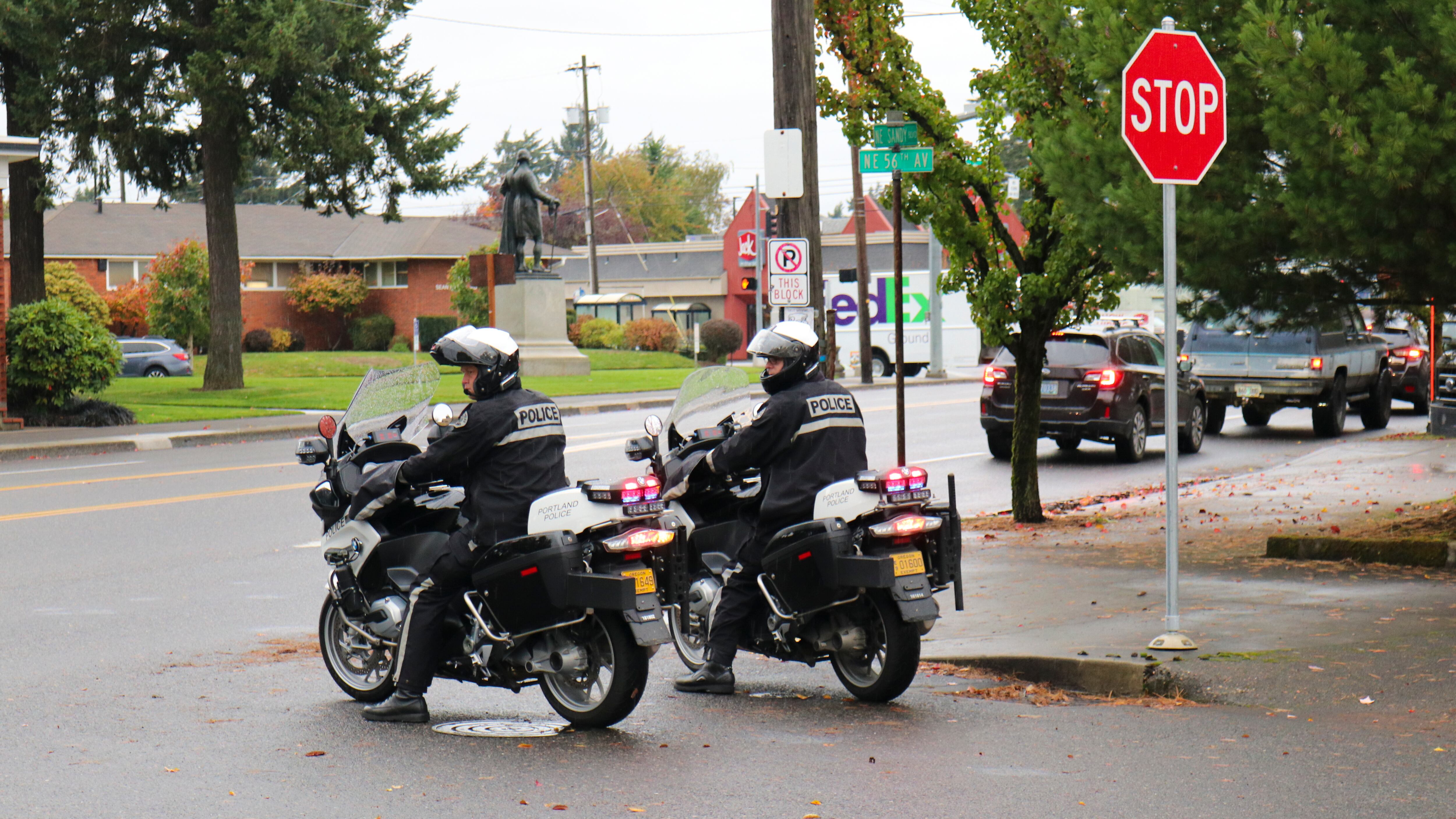City Commissioner Jo Ann Hardesty waded into controversy last month when she questioned the Portland Bureau of Transportation's efforts to reduce traffic deaths and suggested that "distracted walkers" should take more responsibility for traffic accidents in the city.
On July 9, she released a thread of tweets retracting her initial statement and emphasizing her key concern: that police traffic enforcement disproportionately targets people of color.
Namely, I have been requesting more thought be put into the demographics of who is ticketed and stopped with this strategy. Throughout the country and PDX, we have seen time and time again how traffic stops are weaponized against communities of color and low-income communities.
— Commissioner Jo Ann Hardesty (@JoAnnPDX) July 10, 2019
In a year where traffic deaths have spiked in Portland, Hardesty's remarks were particularly fraught.
At least 28 people have died in car crashes in the first half of 2019, making this year's death toll the highest of any period in the past five years. PBOT's Vision Zero program, which began in 2016, is supposed to reduce traffic deaths. It focuses on redesigning streets and refocusing city resources in order to prevent traffic fatalities. But the recent spike shows that it's still got a long way to go.
Hardesty says she supports the program. But in a City Council meeting June 13, she voted against it. Before doing so, she voiced concerns about the ways that two of Vision Zero's four key priorities—"shared responsibility" and "pedestrian protection"—would be implemented.
Her comments on "distracted pedestrians" sharing the blame came under fire.
"I have noticed there are lot of individuals who move through streets and sidewalks never actually looking up," Hardesty said on June 13, as first reported by Bike Portland. "They are on some electronic device that apparently is more important than whether or not they survive crossing the street."
She said new policies came down hard on drivers but failed to acknowledge a lack of safety-related infrastructure investment, particularly in areas like East Portland, where she resides. She also asked that PBOT collect demographic data about who was being penalized and where.
"I think it's a good vision," she concluded. "I just think it could be a better vision."
Commissioner Chloe Eudaly, who oversees PBOT, responded that traffic enforcement was critical in changing behavior. She says drivers need to take increased responsibility for their actions in crashes.
In a Twitter thread this week, Hardesty rehashed her concerns over Vision Zero, but also acknowledged her political misstep. "Tomorrow I will be voting yes to form a task force for Pricing for Equitable Mobility… Conversely, I'd like to explain my Vision Zero 'no' vote," she began.
I want to set the record straight: I believe people deserve to be able to get to and from their destination safely. As a Trimet-dependent East Portlander, I have seen and experienced how dangerous it can be moving throughout the city.
— Commissioner Jo Ann Hardesty (@JoAnnPDX) July 10, 2019
"I have been requesting more thought be put into the demographics of who is ticketed and stopped with this strategy," she continued. "Throughout the country and PDX, we have seen time and time again how traffic stops are weaponized against communities of color and low-income communities… While I am appreciative of the much-needed infrastructure improvements finally coming to East Portland, I am also weary of a program that simultaneously over-polices East Portland."
However, she says she's "absolutely committed to working with Commissioner Eudaly and PBOT to talk through these issues… in crafting policies we need to hold equity at the forefront, not as an afterthought."
Hardesty voted yes on Wednesday for a number of traffic improvements, including a committee to explore road tolling.
